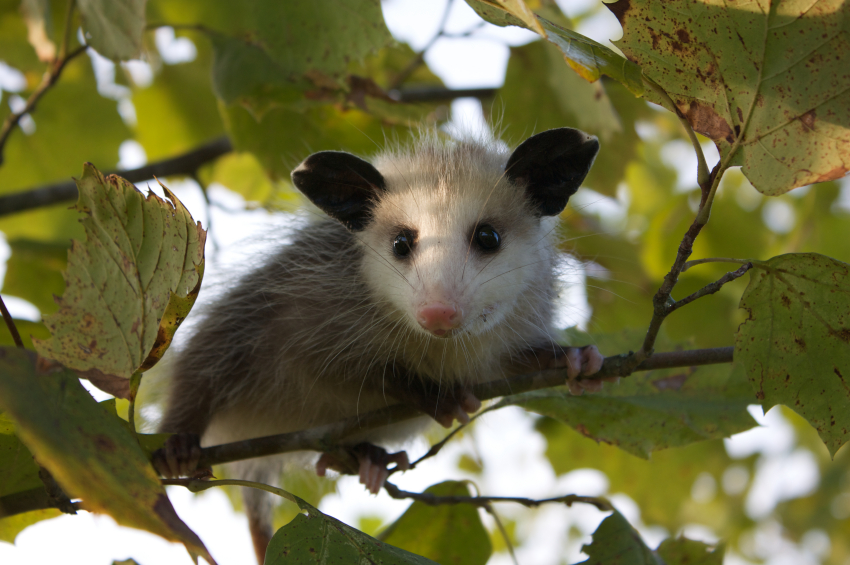Opossums
Did you know? The opossum is the only marsupial native to the United States.

Opossum Facts for Kids
Commonly known as "possums", these pests are the only marsupial native to the United States. They are closely related to the Kangaroo and Koala. They are light gray in color and basically look like big rats. Opossums have five toes on each foot and a tail with no fur.
A female gives birth twice a year, 13 days after conception, to 5 to 8 babies that remain in her pouch until they’re able to walk around on their own by about 4 months of age. Baby opossums are so tiny at birth that 10 can fit in a teaspoon! The opossum’s long pink tail is prehensile, meaning it can be used as a fifth hand. Keep reading for more kid-friendly opossum information.
- Size: 33" long, 12" tall
- Color: Gray
- Legs: 4
- Wings: No
- Antenna: No
- Common Name: Opossum
- Kingdom: Animalia
- Phylum: Chordata
- Class: Mamaalia
- Order: Didelphimorphia
- Family: Didelphidae
- Species: Didelphis virginiana
Diet:
Opossums like to eat garbage, fruit, vegetables, green plants, snails, slugs, snakes, and insects, including cockroaches, crickets, and beetles. They catch and eat rats and mice. They also eat dead animals of all types.
Habitat:
Opossums move around a lot. They typically live in hollow logs, rock crevices, pipes, attics, and beneath buildings.
Impact:
Opossums are non-aggressive and non-destructive. They do not dig into the soil or destroy property. They will not harm people or pets. However, they are wild animals and should not be handled. An opossum will use its 50 pointy teeth to defend itself if necessary.
Prevention:
- Do not leave pet food out at night.
- Pick up fallen fruit.
- Clear away bushes, woodpiles and other hiding places.
Find more information on opossums at the official NPMA website.
Didn’t find what you were looking for, or interested in reading more kid-friendly facts about opossums Get additional opossum information at the official NPMA website.

